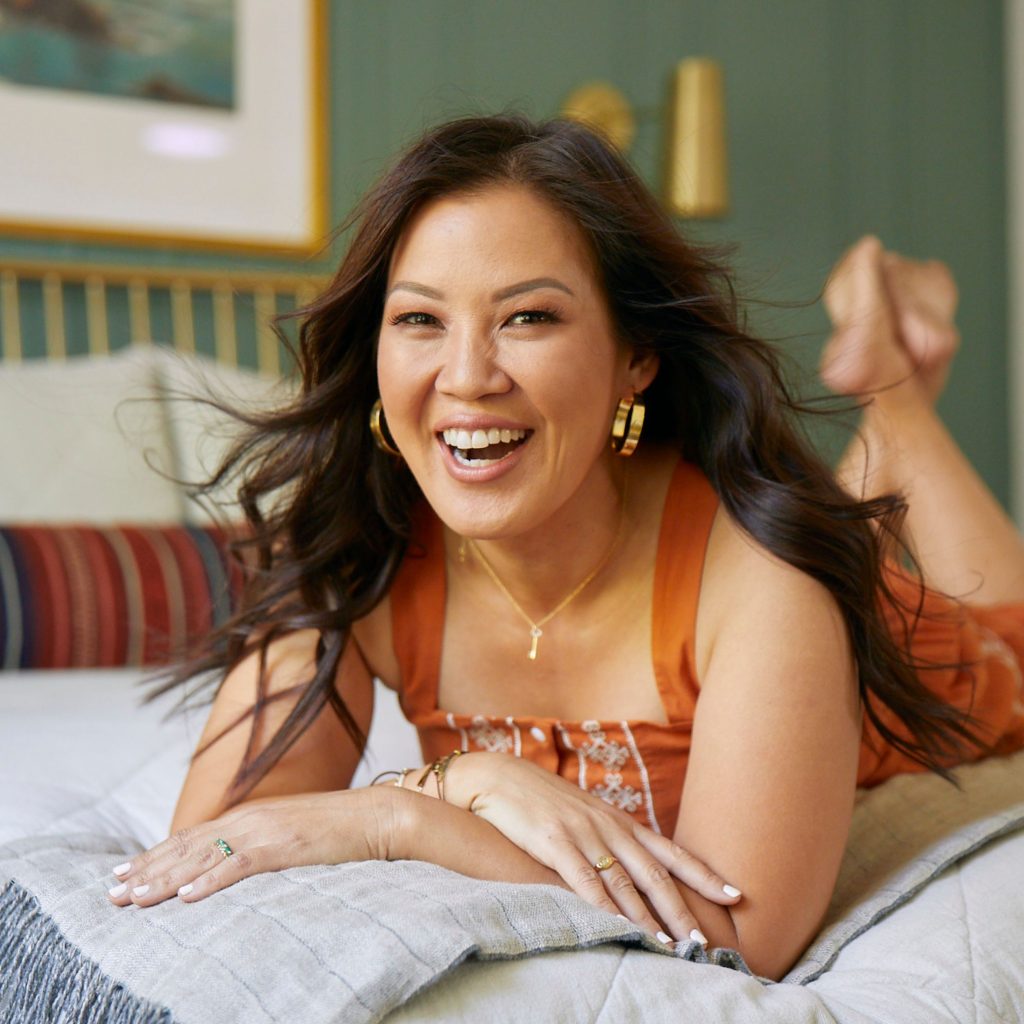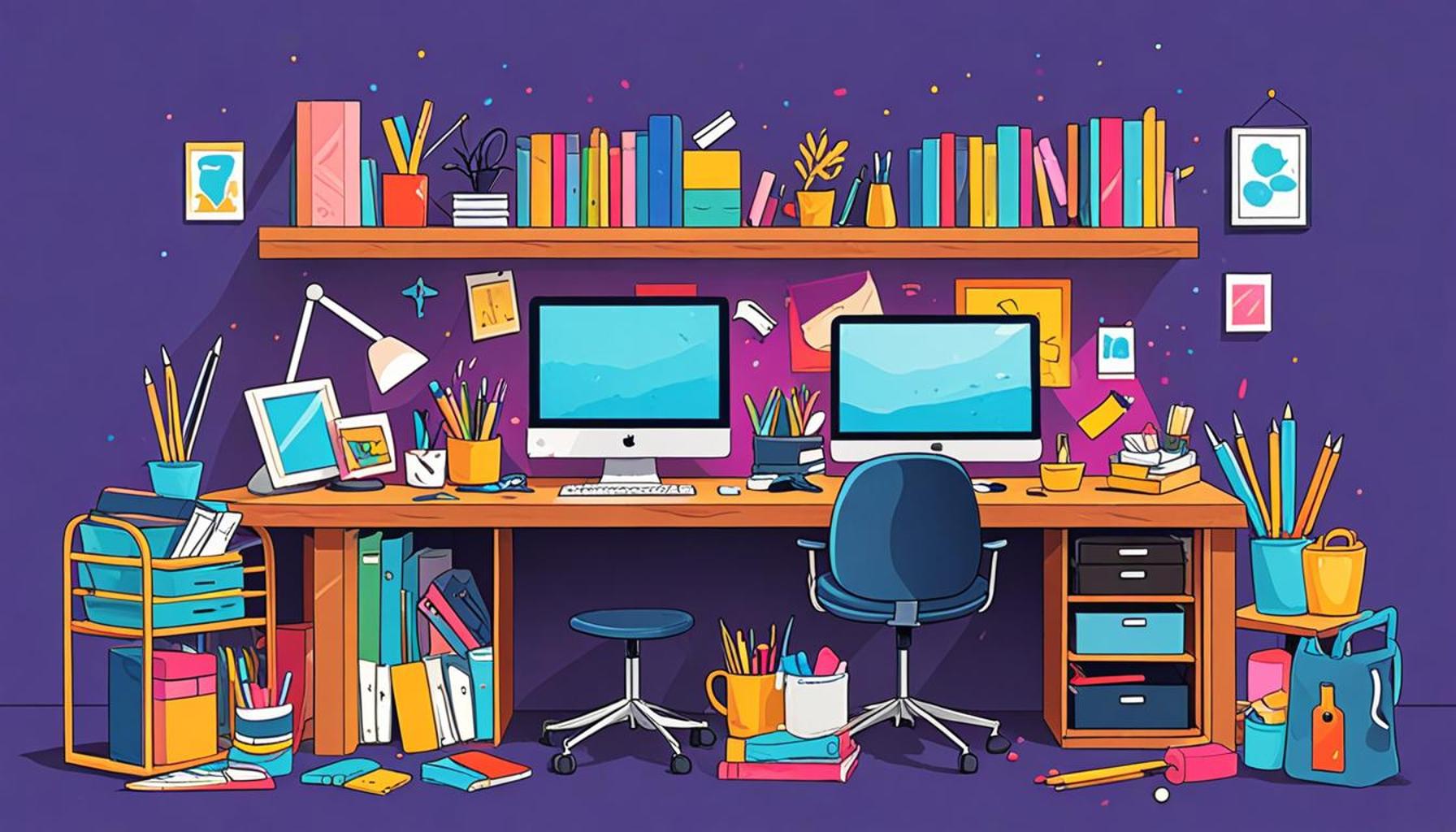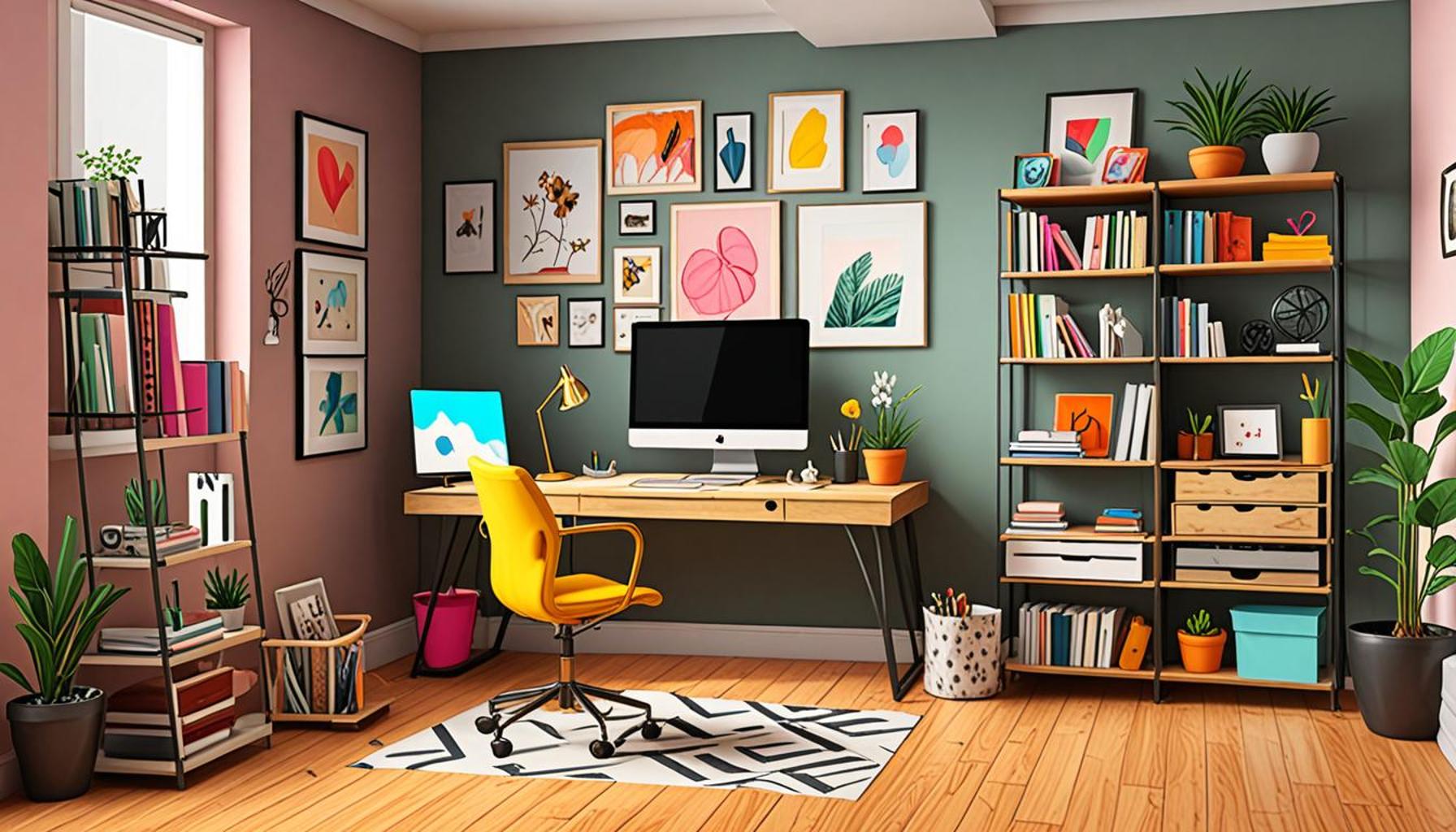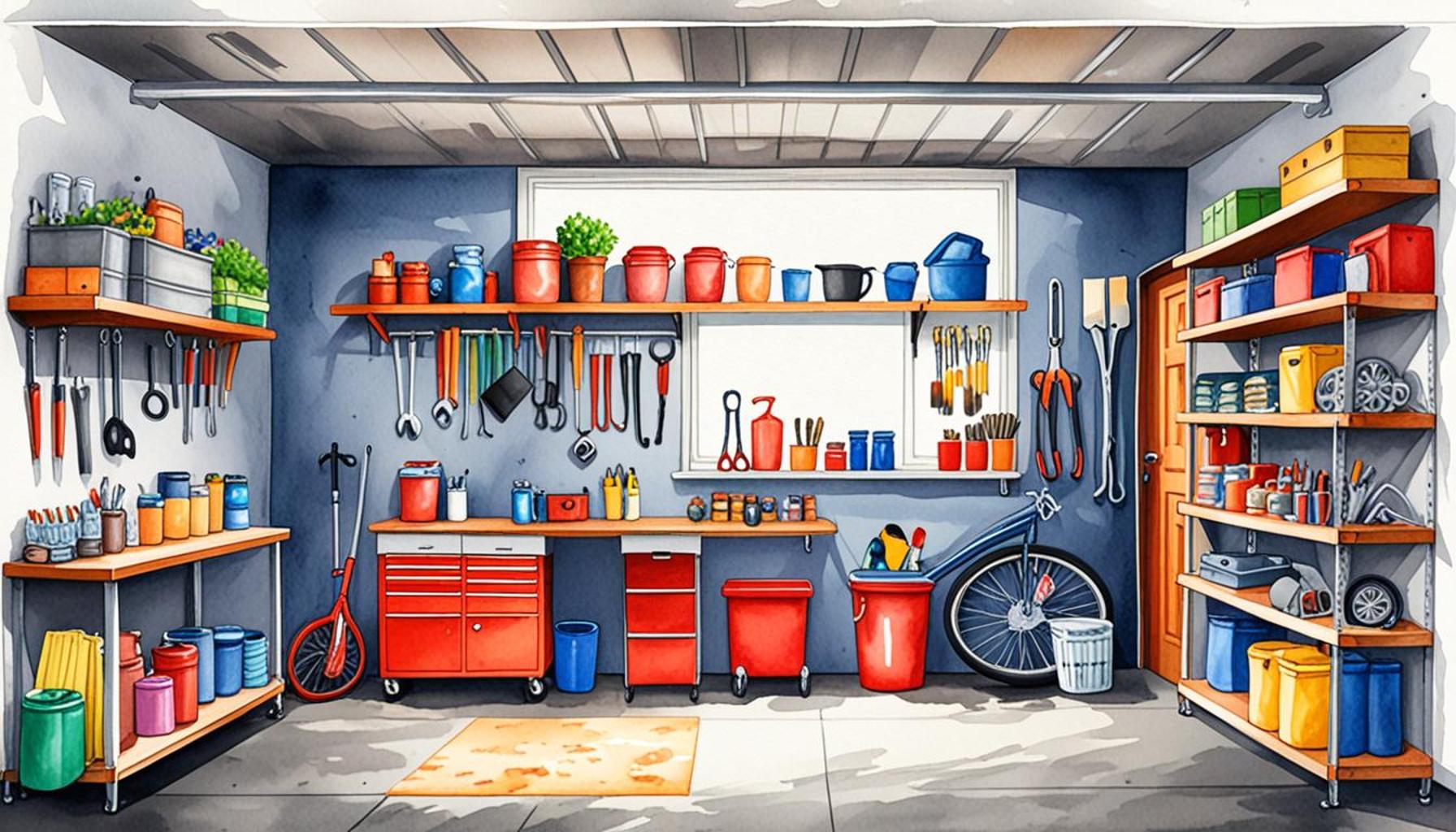Unlocking Happiness The Psychology of Decluttering and Its Benefits

Understanding the Impact of Clutter
In our increasingly busy and often overwhelming lives, clutter emerges not just as a physical presence, but as a significant emotional burden. A staggering 75% of Americans feel overwhelmed by their possessions, indicating a widespread struggle with disorganization. This clutter doesn’t just fill our spaces; it consumes our mental energy, contributing to feelings of anxiety and dissatisfaction. As our environments become chaotic, so too can our thoughts and emotions.
Imagine walking into a home overflowing with items, where every surface is cluttered. The sight might elicit a sense of unease or stress, making it difficult to relax or focus on more productive tasks. On the other hand, envision a tidy room with just a few carefully chosen pieces. This ambiance can create a refuge of calm, enabling clearer thinking and boosting overall well-being. Indeed, decluttering could potentially be the key to unlocking a happier, more fulfilling life.
The Psychological Benefits of Decluttering
Research underscores a direct correlation between a decluttered space and improved mental health. Studies highlight that a clean and organized environment can lead to:
- Reduced Stress: Clear spaces promote a manageable mind, reducing feelings of being overwhelmed and anxious.
- Increased Focus: With fewer distractions, individuals often experience enhanced productivity, allowing them to engage more deeply with their tasks.
- Improved Mood: The act of organizing and decluttering can lead to a compelling sense of accomplishment, further boosting one’s emotional state.
When individuals embark on the decluttering journey, they often report a myriad of psychological benefits. A sense of liberation emerges as people sift through items and remove those that no longer serve a purpose in their lives. This cathartic release can lead to:
- Higher Energy Levels: Many individuals find that decluttering invigorates their spirit, igniting enthusiasm for life.
- Better Relationships: By fostering a more organized space, families and roommates often experience decreased tensions, contributing to more harmonious interactions.
- A Stronger Sense of Control: Taking charge of one’s space gives individuals a feeling of mastery over their environment, instilling confidence and a proactive mindset.
Moreover, research has shown that decluttering can enhance cognitive functioning. Many people who live in organized spaces report clearer thinking and better decision-making abilities. With a clear space comes the opportunity for a clear mind—a valuable lesson in this age where distractions are rampant.

Conclusion: A Journey Worth Taking
Embarking on the journey of decluttering not only transforms physical spaces but also fosters a positive shift in mindset. This exploration into the psychology behind decluttering highlights the profound benefits it can bring to our lives. As individuals tackle the mess around them, they rip away layers of stress and chaos, paving the way for greater clarity and joy. The path toward a more organized life may very well lead you to newfound happiness, illustrating that small changes can indeed lead to significant transformations.
SEE ALSO: Click here to read another article
The Transformative Power of Decluttering
As we delve deeper into the world of decluttering, it’s essential to recognize how much our physical surroundings shape our emotional landscapes. The concept of decluttering goes beyond merely tidying up; it becomes a profound exercise in reshaping not only our environment, but also our psyche. When we take the time to remove excess items, we create space—both literally and metaphorically—allowing for new opportunities and experiences to flow into our lives.
Interestingly, 68% of individuals report feeling a sense of relief after decluttering. This phenomenon can be attributed to the psychological principle known as cognitive load theory, which posits that too many visual stimuli can overwhelm our brain, leading to reduced cognitive functioning. When a space is cluttered, our minds become distracted, reducing our ability to focus and engage fully in present activities. Eliminating distractions through decluttering enhances our ability to process information efficiently, paving the way for improved creativity and problem solving.
Decluttering as a Therapeutic Process
The process of decluttering often carries therapeutic benefits, akin to practices such as meditation or mindfulness. Engaging in this act allows individuals to reflect on their attachment to items, sparking conversations about what truly adds value to their lives. This form of emotional exploration can serve as a path to self-discovery, promoting:
- Self-Awareness: Decluttering forces individuals to confront their habits, questioning why certain items were accumulated in the first place.
- Mindfulness: As one sorts through possessions, they cultivate a state of present awareness, appreciating the items that bring joy and letting go of those that do not.
- Healing: Releasing physical objects can translate into emotional liberation, allowing past traumas to be processed and moved on from.
Furthermore, decluttering engages the senses in a way that can be invigorating. The act of organizing spaces can stimulate a rush of endorphins, the body’s natural feel-good chemicals. As individuals declutter, they can enjoy the tactile experience of handling their belongings, the visual satisfaction of neat arrangements, and even the invigorating scents of cleaning products. This sensory engagement reinforces the positive outcomes of the decluttering process, leading to a cycle of happiness and fulfillment.
In essence, embarking on a decluttering journey serves not only to enhance our living spaces but also to enrich our emotional well-being. Each item that is thoughtfully evaluated and either retained or discarded contributes to shaping a life filled with purpose and clarity. By understanding the psychology behind decluttering, we unlock pathways to happiness that have long been hidden beneath layers of physical and emotional clutter.
| Advantages of Decluttering | Psychological Benefits |
|---|---|
| Enhanced Focus | A clear space leads to a clear mind, reducing distractions and increasing productivity. |
| Reduced Stress | Decluttering promotes a sense of calmness and control over one’s environment, leading to lower anxiety levels. |
| Increased Motivation | Organized spaces can inspire individuals to pursue goals and make positive life changes. |
| Empowerment | Taking charge of one’s possessions instills a sense of ownership and responsibility. |
Decluttering not only transforms physical spaces but also influences psychological well-being, offering myriad benefits that can enhance overall happiness. When an individual engages in the act of decluttering, it triggers a series of emotional responses that promote psychological peace. The process allows for introspection and reflection, making it a beneficial practice in the journey toward self-improvement. Many studies suggest that our environments heavily impact our mental states. For instance, a cluttered home may split attention and increase feelings of overwhelm, while an organized space fosters clarity and motivation. Furthermore, individuals may discover buried treasures during decluttering, reigniting joy and gratitude for what they possess. In essence, decluttering acts as a catalyst not merely for physical change but for profound emotional transformations, paving the way for unlocking a more fulfilling and joyful life.
SEE ALSO: Click here to read another article
The Emotional Liberation of Letting Go
One of the most profound aspects of decluttering is the emotional liberation that accompanies the act of letting go. Many individuals find that the items they accumulate often hold sentimental value, serving as a reminder of past experiences or relationships. However, this attachment can be detrimental, weighing us down emotionally. Research indicates that 73% of participants in decluttering workshops reported a newfound lightness and freedom after parting with possessions that no longer served their current lives.
Understanding the emotional connections we form with our belongings can illuminate why letting go is so challenging. Cognitive behavioral therapy, a popular therapeutic approach, suggests that our thoughts influence our feelings and behaviors. When we let go of items, we challenge the narrative that these objects define us. This shift in perspective can result in the following emotional benefits:
- Increased Resilience: The act of releasing possessions teaches us that we can adapt and move forward. This resilience fosters a sense of empowerment, encouraging individuals to tackle other aspects of their lives that may feel overwhelming.
- Emotional Clarity: As we sort through items, we often confront unresolved feelings tied to past experiences. By processing these emotions, we can achieve greater clarity about our current desires and future goals.
- Enhanced Gratitude: As we create space by letting go, we also cultivate greater appreciation for the items we choose to keep. This shift toward mindfulness promotes a sense of gratitude that transcends material possessions.
Decluttering and the Pursuit of Minimalism
The conversation around decluttering often dovetails with the philosophy of minimalism, which champions simplicity as a pathway to a more fulfilling life. In recent years, minimalism has gained traction in American culture, with countless books, documentaries, and social media influencers advocating for a lifestyle stripped of excess. This movement resonates deeply with individuals seeking authentic experiences over material wealth.
Statistics reveal a growing interest in minimalism, with searches for “minimalist lifestyle” rising by more than 200% over the last five years in the U.S. Decluttering aligns seamlessly with this quest for minimalism, as individuals shed excess to focus on what truly matters. Some benefits of adopting a minimalist philosophy include:
- Financial Freedom: By choosing to value experiences over possessions, individuals often find themselves spending less, leading to enhanced financial stability.
- Time Management: A simplified environment fosters greater productivity, enabling individuals to allocate their time toward meaningful pursuits rather than maintenance of excessive items.
- Mental Clarity: Minimalism promotes a cleaner, more organized space that can significantly reduce anxiety and encourage focus, transforming the way individuals engage with their daily lives.
In essence, decluttering encapsulates a movement toward emotional freedom, self-discovery, and mindful living. As individuals wrestle with the question of what to keep and what to release, they cultivate a deeper understanding of their priorities. The journey of decluttering becomes not just about organization, but also a powerful catalyst for personal transformation, unlocking new pathways toward happiness and fulfillment in life.
SEE ALSO: Click here to read another article
Conclusion: Embracing a Life of Meaningful Simplicity
In a world often defined by excess and the relentless pursuit of more, decluttering emerges as a transformative practice that taps into the core of human happiness. Through understanding the psychology behind our attachments to belongings, individuals embark on a journey of emotional liberation that fosters resilience, clarity, and gratitude. As we sift through the clutter, we not only create physical space but also make room for deeper emotional connections and meaningful experiences.
The rise of minimalism highlights a collective shift towards valuing quality over quantity, encouraging individuals to reevaluate what truly contributes to their well-being. The data is compelling; with more than 200% increase in interest around minimalist living in recent years, it’s evident that many are discovering the profound benefits of a simplified lifestyle. Less truly can be more, as fostering an organized environment translates into heightened mental clarity, improved time management, and even enhanced financial freedom.
Ultimately, the journey of decluttering transcends mere organization. It presents an opportunity for self-discovery and empowerment, redefining our relationship with possessions and illuminating the path toward lasting happiness. As you consider your own space and the items within it, challenge yourself to let go of what no longer serves you. Embrace the lightness that follows, and unlock the door to a more fulfilling existence. With each item released, there lies potential — a chance to reinvest in what honors our present and inspires our future.



